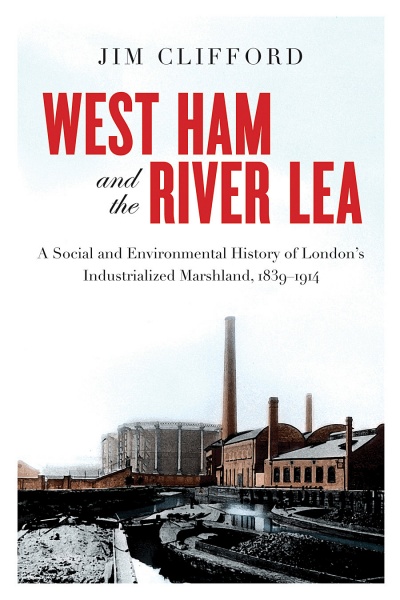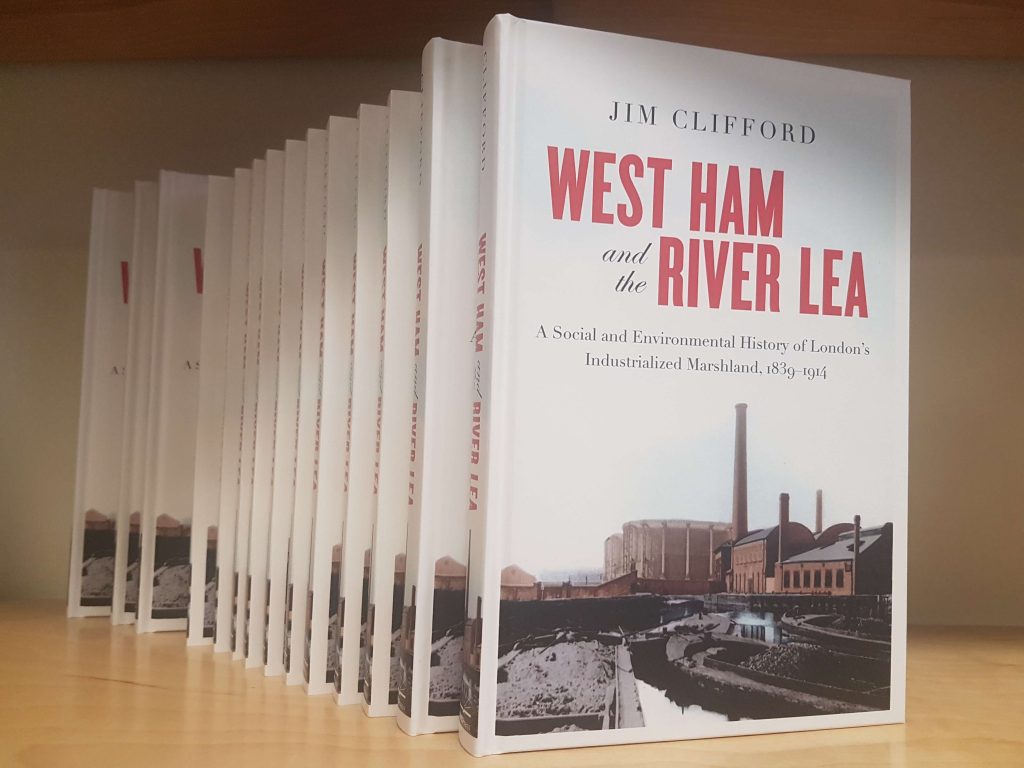New Books Network Podcast
 David Fouser interviewed me about by book for the New Books Network Podcast series. Here is his description of the book and a link to the podcast:
David Fouser interviewed me about by book for the New Books Network Podcast series. Here is his description of the book and a link to the podcast:
In West Ham and the River Lea: A Social and Environmental History of London’s Industrialized Marshlands, 1839-1914 (University of British Columbia Press, 2017), Jim Clifford brings together histories of water and river systems, urban history, environmental history, and labor history. Using archival materials with a particular focus on Ordnance Survey maps and historical GIS (geographical information systems), he explores Greater London’s second important river, the Lea, using it as a lens through which to track industrialization in the 19th and early 20th century. He shows how the River Lea made West Ham an attractive area for industrial development, drawing manufacturing and chemical plants to the area. [read more and listen to the podcast here]

